May 2020 National eResearch Newsletter
Welcome to the May 2020 National eResearch Newsletter
Message from AeRO
The eResearch community’s response to the CoVid-19 challenges has been nothing short of outstanding – we have lead the way with increased online collaboration and addressed challenges associated with working from home. Huge shoutout to AeRO member AARNet for providing excellent network connectivity and capacity to keep us all connected.
This month AeRO was delighted to facilitate the C3DIS Virtual Collaborative Conference on Computational and Data Intensive Science. Following cancellation of the original face-to-face conference, the Organising Committee, together with Conference Chairs Dr John Zic (CSIRO) and Dr Carina Kemp (AARNet) were pleased to deliver a virtual conference program which was well attended. Details of the program are available at https://docs.google.com/spreadsheets/d/1S2SafVw5y45kimlPM8btG9Dg8LyIpUTgK9zZOq2kZ4s and we look forward to making recordings of the sessions available shortly.
AeRO will shortly be distributing a brief survey to seek feedback from C3DIS VIRTUAL presenters and attendees – with the intent to transfer any lessons learned from this conference to the eResearch Australasia conference program for this year. Details to be announced shortly.
We trust you, your families and colleagues will continue to stay isolated and stay safe – and we look forward to continuing to work within the new virtual environment.
Loretta Davis – AeRO Executive Officer.
 |
HPC Certification Workshop: 20-May
The International HPC Certification Forum is holding a short virtual workshop on May 20th from 18:00-20:00 AEST. The workshop is to discuss certification, teaching, and learning HPC content to establish an internationally recognised certificate for HPC users.
Virtual Workshop: Toward a Globally Acknowledged and Free HPC Certification
Details and registration here: |
 |
Register for the AARNet Webinar Series: Supporting Remote Research: 21-May
The research community is facing many challenges around continuing research with labs and campuses closed due to the Coronavirus pandemic. To support researchers, the AARNet eResearch team is hosting fortnightly webinars, starting 7-May, focused on remote research challenges and solutions. This is a timely series of webinars offering advice to researchers about tools and methods that can make life easier while working remotely. Recordings are available for past webinars.
See https://news.aarnet.edu.au/aarnet-webinar-series-supporting-remote-research/. |
 |
NCMAS Committee Expressions of Interest: 22-May
The National Computational Merit Allocation Scheme is currently calling for Expressions of Interest from researchers to join the NCMAS Committee. The application deadline has been extended to the 22nd of May.
Find out more about the role and how to apply at https://ncmas.nci.org.au/2020/NCMAS-Committee-EOI. |
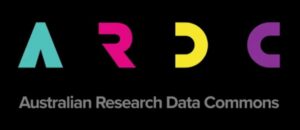 |
ARDC Platforms Program Call Open Soon
The ARDC Platforms program will be calling for expressions of interest for their 2020 platforms open call soon. Find out more about the process and indicative timelines here: https://ardc.edu.au/collaborations/strategic-activities/platforms/platforms-open-call-2020/. |
 |
AAF Survey Seeking Feedback
Each year the AAF conducts two surveys that help inform our future developments.
The AAF is seeking your feedback so we can continue to provide your organisation with high quality services. Please answer the short 10-minute survey relevant to you, to tell us how we’re doing.
Complete the survey relevant to you: |
 |
Australian BioCommons Webinar: Using Containers in Bioinformatics: 15-Jun
This three-part webinar series will guide you through using containers in bioinformatics to bring benefits like software portability, data reproducibility and improved collaboration.
To participate, all you’ll need is command line familiarity, but ideally bring along your own computer and get hands-on.
Join us for these free 60-90min webinars starting at 2pm AEST / 12pm AWST / 1:30pm ACST:
Further information and registration details: https://www.biocommons.org.au/events. |
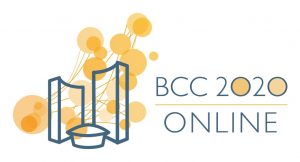 |
Australian Galaxy Team to Help Host Delivery of BCC2020 Online Conference in July
As part of the global Galaxy network, the Galaxy Australia team are pleased to be helping to organise the Bioinformatics Community Conference (BCC2020) Online, over 17-26 July. It will be global, affordable and accessible to all. Two training days, a 3 day meeting, a 4 day collaboration fest – on eastern and western time zones.
Registrations now open: https://bcc2020.github.io/. |
 |
New Version of MRtrix3 Image Processing Released
MRtrix3 is an open source software, it provides a large suite of tools for image processing, analysis and visualisation, with a focus on the analysis of white matter using diffusion-weighted MRI. The software is currently capable of handling DICOM, NIfTI and AnalyseAVW image formats, amongst others. The source code is distributed under the Mozilla Public License (http://mozilla.org/MPL/2.0/).
On 24-Apr-20 a new release of version 3.0.0 was announced https://community.mrtrix.org/t/mrtrix-3-0-0-has-arrived/3558.
This is an international collaboration, Robert Smith is in Australia and works at The Florey and is also a National Imaging Facility Informatics Fellow. |
 |
Pawsey Boosts Galaxy Australia’s Capabilities with COVID-19 Grant
Australian researchers can now rapidly analyse their SARS-CoV-2 data using published tools and workflows by using a new dedicated Galaxy COVID-19 compute node hosted at Pawsey Supercomputing Centre.
Full story: https://www.biocommons.org.au/pawsey-covid-grant. |
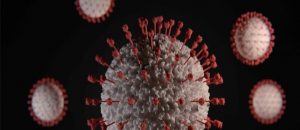 |
NCRIS Accelerating COVID-19 Research
Australia is at the forefront of the COVID-19 vaccine development with key researchers using institutional and national research infrastructures and cooperating with commercial providers to accelerate COVID-19 responses.
An article highlighting how NCRIS facilities are helping researchers tackle COVID-19 can be seen at: https://ardc.edu.au/news/australias-digital-research-infrastructures-at-the-forefront-in-helping-researchers-tackle-covid-19/. |
 |
RDA COVID-19 Working Group Guidelines Released
The Research Data Alliance COVID-19 Working Group has released recommendations and guidelines on data sharing and reuse to help researchers follow best practices to maximise the efficiency of their work. RDA members are invited to review and comment.
See https://rd-alliance.org/rda-covid-19-recommendations-and-guidelines-3rd-release-open-comments. |
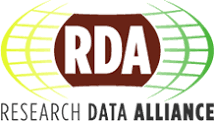 |
RDA Virtual Plenary Highlights
Recap on the Research Data Alliance Virtual Plenary which had over 2,000 registrations (more than 900 individuals) across 45 virtual breakout sessions and 2 keynotes. Recordings of the sessions are being added to the Virtual Plenary programme page as they become available.
|
 |
The Biggest Compute Grants in Australian History
NCI has announced the recipients of the inaugural Australasian Leadership Computing Grants. The researchers receiving these highly competitive grants will tackle some of the biggest computational science problems at the highest resolution, in the shortest time, thanks to record-breaking access to NCI’s new supercomputer. The successful recipients have been allocated an unprecedented 180 million units of computing time between them.
Read more at https://bit.ly/ALCG2020. |
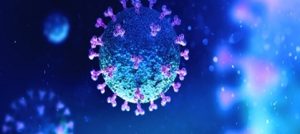 |
Leaders in Australian Computing Research Begin Battle with COVID-19
NCI Australia and the Pawsey Supercomputing Centre, supported by the Federal Government’s NCRIS program, are proud to be supporting COVID-19 research with prioritised and expedited access to computation and data resources. NCI has announced support for three targeted projects with over 40 million units of computing time, investigating aspects of drug design and drug selection based on the molecular structures of virus-human interactions.
Read more at https://bit.ly/ALCGCOVID. |
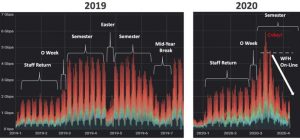 |
AARNet’s Race to Upgrade Network and Services as Staff and Students Sent Home
Along with all our customers in the research and education sector, AARNet is operating in unprecedented times. The sudden and mass movement of students, faculty and staff to working and learning from home has resulted in some remarkable changes to the internet ecosystem and the way data flows across the AARNet network. Even with campuses across the country closed, AARNet is playing a vital role to support the research and education sector. Research traffic continues to move across the AARNet network and we are providing critical video and collaboration services for enabling remote working and learning.
|
Contributions
This newsletter is based on contributions provided by members of the eResearch community, and draws on news articles and newsletters published across the sector. The Newsletter is published around the 16th of each month.
Please send any contributions (max. 100 words, plus a link and image) or pointers to any other relevant articles or newsletters to editor@aero.edu.au
Archives of these Newsletters are held at http://aero.edu.au/newsletters/.
Click HERE to add yourself to the eResearch Mailing List.
Thanks,
—AeRO Newsletter Editor

